
Sukarno was an Indonesian statesman,orator,revolutionary,and nationalist who was the first president of Indonesia,serving from 1945 to 1967.
The Abangan are Javanese people who are Muslims and practice a much more syncretic version of Islam than the more orthodox santri. The term,apparently derived from the Javanese language word for red,abang,was first developed by Clifford Geertz,but the meaning has since shifted. Abangan are more inclined to follow a local system of beliefs called adat and Kebatinan than pure Sharia. Their belief system integrates Hinduism,Buddhism and animism. However,some scholars hold that what has classically been viewed as Indonesian variance from Islam is often a part of that faith in other countries. For example,Martin van Bruinessen notes similarity between adat and historical practice among Muslims in Egypt as described by Edward Lane.

The Communist Party of Indonesia was a communist party in the Dutch East Indies and later Indonesia. It was the largest non-ruling communist party in the world before its violent disbandment in 1965. The party had two million members in the 1955 elections,with 16 percent of the national vote and almost 30 percent of the vote in East Java. During most of the period immediately following the Indonesian Independence until the eradication of the PKI in 1965,it was a legal party operating openly in the country. Accused of responsibility for the 1965 army-led coup attempt,the party was banned by General Suharto in March 1966.
Peasants Front of Indonesia was a peasant mass organisation connected to the Communist Party of Indonesia (PKI). BTI was founded 25 November 1945. The previous peasant organisation of PKI had been the Peasants Union formed in 1945. Its final general chairman was Asmu,the PKI's main agricultural analyst,who was appointed to the position in July 1962. The organization struggled for land reform,and was suppressed along with PKI in 1965.
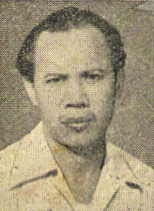
Muhammad Hatta Lukman was an Indonesian communist politician,who served as the First Deputy Chairman of the Central Committee of the Communist Party of Indonesia (PKI),and a member of the People's Representative Council from 1956 until 1959. He was executed following the 1965 crackdown on the PKI.
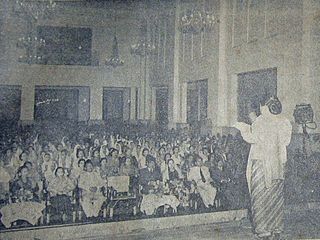
Gerwani was a women's organization founded as Gerwis in Semarang,Central Java,on 4 June 1950.
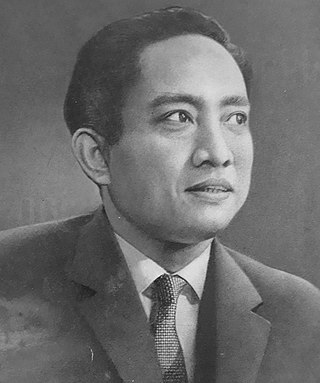
Dipa Nusantara Aidit was an Indonesian communist politician,who served as General Secretary of the Communist Party of Indonesia (PKI) from 1951 until his summary execution during the mass killings of 1965–66. Born on Belitung Island,he was nicknamed "Amat".

Lukman Njoto or Njoto was a senior national leader of the Communist Party of Indonesia (PKI),who joined the party shortly after the country's declaration of independence,and was killed following the 1965 coup attempt.

The Madiun Affair,known locally as the Communist Party of Indonesia rebellion of 1948,was an armed conflict between the government of the self-proclaimed Republic of Indonesia and the left-wing opposition group Front Demokrasi Rakyat during the Indonesian National Revolution. The conflict began on September 18,1948,in Madiun,East Java,and ended three months later when most FDR leaders and members were detained and executed by TNI forces.

Large-scale killings and civil unrest primarily targeting members and supposed sympathizers of the Communist Party of Indonesia (PKI) were carried out in Indonesia from 1965 to 1966. Other affected groups included alleged communist sympathisers,Gerwani women,trade unionists,ethnic Javanese Abangan,ethnic Chinese,atheists,so-called "unbelievers",and alleged leftists in general. According to the most widely published estimates at least 500,000 to 1 million people were killed,with some estimates going as high as two to three million. The atrocities,sometimes described as a genocide or a politicide,were instigated by the Indonesian Army under Suharto. Research and declassified documents demonstrate the Indonesian authorities received support from foreign countries such as the United States and the United Kingdom.

The National People's Party,initially founded as the Indonesian National Party–Independent,was a political party in Indonesia. It was founded on 23 July 1950 after a split within the Indonesian National Party (PNI). The divisions with the PNI had appeared at the party congress in May the same year,when Sidik Djojosukarto's followers had emerged victorious. Djody Gondokusumo was the chairman of the party.
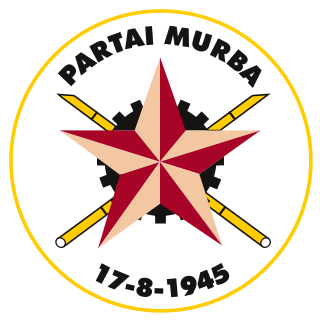
Murba Party was a 'national communist' political party in Indonesia. The party was founded by Tan Malaka,Chairul Saleh,Sukarni and Adam Malik in 1948. The history of the party was largely intertwined with that of the powerful Communist Party of Indonesia (PKI). Initially relations between PKI and the Murba Party were fluid,but gradually the two parties developed into each other's arch-enemies. The Murba Party continued to exist under the New Order,but was merged into the Indonesian Democratic Party in 1973.
Serbaud,short for Serikat Buruh Angkatan Udara,was a trade union of air transport employees and workers in Indonesia. Serbaud was affiliated to the trade union centre SOBSI,which was linked to the Communist Party of Indonesia. Serbaud was estimated to have less than 3,000 members.
Harian Rakjat was an Indonesian newspaper published by the Communist Party of Indonesia (PKI) from 1951 to 1965. The Harian Rakjat motto was "Untuk rakjat hanya ada satu harian,Harian Rakjat!". Harian Rakyat was managed by Njoto as a member of the editorial board and Mula Naibaho as editor in chief.

Following the military take-over in Indonesia and the massacres of 1965–66,the Albanian capital Tirana became one of the main hubs for exiled members and sympathizers of the pro-Chinese wing of the Communist Party of Indonesia (PKI). According to prof. Justus van der Kroef there were about forty Indonesian communists staying in Tirana in the early 1970s,around half of them organized in the Persatuan Peladjar Indonesia. The Tirana-based group often acted as spokespersons of the party.

Wikana was an Indonesian minister and independence leader. He was one of the youths who forced Sukarno and Hatta to declare independence immediately after the surrender of the Japanese. He was the first Indonesian Minister of Youth and Sport. He was a member of the Indonesian Communist Party. Sometime after the 1965 coup d'état attempt,he was arrested and went missing. It is supposed that he was one of the assassinated in the Indonesian mass killings of 1965–66.
Censorship in Indonesia has varied since the country declared its independence in 1945. For most of its history the government of Indonesia has not fully allowed free speech and has censored Western movies,books,films,and music as well. However,partly due to the weakness of the state and cultural factors,it has never been a country with full censorship where no critical voices were able to be printed or voiced.
Oloan Hutapea,also known as B. O. Hutapea,was a high-ranking member of the Indonesian Communist Party and one of its major theoreticians during the height of its power,and was leader of a clandestine wing of the party in 1967-8 during the Transition to the New Order.
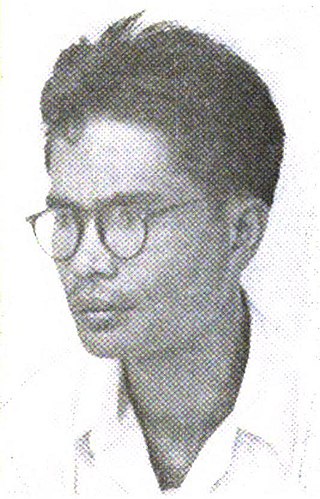
Peris Pardede (1918–1982) was an Indonesian politician who was a key figure in the Communist Party of Indonesia during the Sukarno era. He held various roles,including editor of the party magazine Bintang Merah,representative of the party in the Provisional House of Representatives and the House of Representatives throughout the 1950s and early 1960s,and Politburo candidate in 1965. After the party was banned in 1965,he was put on trial and spent his final decades as a political prisoner of the Suharto regime.
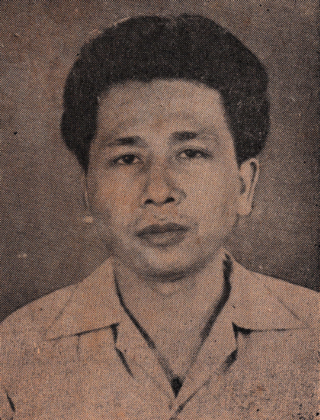
Njono or Njono Prawiro was a labor activist and member of the Politburo of the Communist Party of Indonesia (PKI). Njono was known as the Secretary-General and Chairman of the Central All-Indonesian Workers Organization (SOBSI) and a member of the Politburo of the PKI Central Committee who got involved in the September 30 Movement. Previously,Njono was a member of the Indonesian Labor Party (PBI) and served as its interim chairman.














